|
Word Gems
exploring self-realization, sacred personhood, and full humanity
How To Sit Quietly
In A Room Alone
| You're industrious, you say? busy? proactive, get out there and make it happen? - really? or is it a way of escape and cover-up, a work-ethic fueled by neediness, "I don't have enough," fear and doubt, and "I am not enough"? |
return to the "contents" page
"If you spend a long period of time in study and self-cultivation, you will enter ... a world of extraordinary perceptions. You experience unimaginable things, receive thoughts and learning as if from nowhere, perceive things that could be classified as prescient. Yet if you try to communicate what you experience, there is no one to understand you, no one who will believe you. The more you walk this road, the farther you are from the ordinary ways of society... To speak to them of the wonders you have seen is often to engage in a futile bout of miscommunication. That is why it is said that those who know do not speak." Deng Ming-Dao, 365 Tao
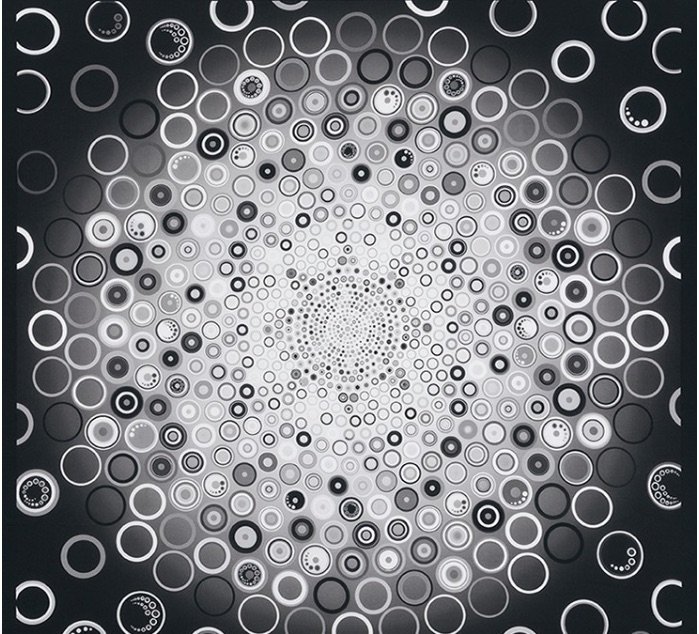
Recall the work and advice of Sophia Williams:
|
Michael Tymn writes:
In her 1946 book, You are Psychic, Sophia Williams, whose direct-voice mediumship is described by researcher Hamlin Garland in his book The Mystery of the Buried Crosses (available from White Crow Books), wrote that it took her four years of sitting quietly each day while learning the art of relaxation and complete detachment before she began to develop as a medium. Williams went on to explain that the first spirit voice coming through her mediumship was weak and difficult to understand, but the voices became clearer as she continued to sit in silence. She added that the voices came through in many different languages. She stressed the need to achieve absolute relaxation as a first step and then sit in a state of expectancy with the mind cleared of all conscious thoughts and memories. “Conscious thought must be avoided – consciously trying not to think is thinking,” she pointed out.
|
when we sit in a quiet room alone, our primary goal is not to develop mediumistic abilities and become a public person like John Edwards
If it’s your calling, and if you invest the requisite years developing psychic abilities, then that’s fine, it could happen for you, and you will provide a service to the public, as John properly does. But Heaven will not summon most of us to perform onstage as a psychic. There’s far more important work for us than this.
The purpose of sitting quietly in a room alone is to transform oneself, to open one’s eyes, to come alive, to perceive the cosmic fire within, to realize that we are – now, have always been, and forever will be – one with God.

It’s possible to walk part way down this path and become a psychic-medium without finding true spirituality. The ancient Spirit Guides warn against this – they say that some have become good mediums without becoming good persons. This is not a good thing.
What happens when we attempt to sit quietly in a room alone?
The first thing you will notice is how extremely difficult it is to quiet the thinking mind. To ratchet down the mental noise, even a little bit, will be the greatest challenge of your life; even, your eternal life.
So, you’re sitting there. You begin by focusing your attention on an object in the room, just to concentrate attention and divert yourself. And now here comes the circus rider, jumping from horse to horse.
What do I mean by this?
desultorially yours
Maybe you know the word “desultory.” A desultory conversation could indicate a quick jumping from topic to topic. The Latin root is desultor (n.), "a rider in a circus who jumps from one galloping horse to another.”
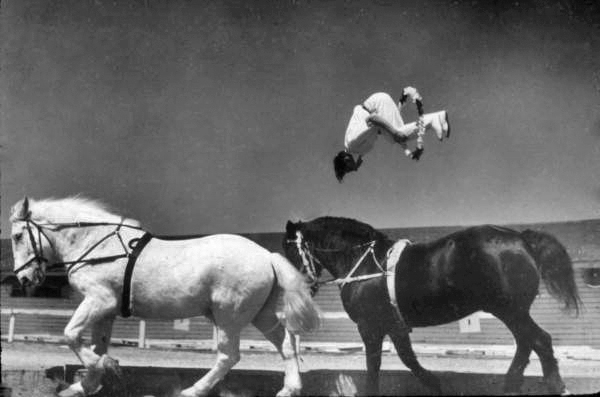
The dysfunctional Ego is like this circus rider. The moment you try to slow it down, stop the action, it will jump to a new thought, and then another, and another. The harder you try, by sheer force of will, to sequester it, the more it will leap from horse to horse. Instead of forcing and applying mental pressure, we will need to learn, as Peter Russell put it, how to “relax into the resistance.”
|
the many shape-shifting images of the Needy Ego have one thing in common
As the Ego rides through the psyche in its desultory ways, jumping from one image to the next, we eventually sense that all cinematographic representations have one common element: they all feature some aspect of “otherness,” some version of “me against them,” some scheme to avoid feeling "less" by getting "more." The kaleidoscopic array will portray persons and things as relating to:
Fear, an expectation of becoming or having "less"
Anger, an opportunity for ego-repair after being made to feel "less"
Scheming Revenge, plans to feel “more” by making someone else "less"
Sexual conquest, taking one's pleasure from, exploiting, another, which is an attempt to cover personal pain, a feeling of "less"
Depression, a defeated outlook without hope of “more”
Boredom, a mask to pretend we aren’t afraid of becoming "less"
Cultish subservience, a cowering surrendering of autonomy to a superior power, which is an attempt to become "more" via some external force
Terror, an open acknowledgment of “I will soon have nothing”
In all these, the Ego casts itself as either victim or perpetrator in a drama of “getting more” or “having less.”
Why were we created this way? As discussed in other articles, as per the testimony of Spirit Guides, the Ego is a temporary developmental stage meant to sharpen our sense of personhood.
It’s part of the individuation process. The recurrent insistence on “otherness” in all that the Ego does, while not pretty, furthers the long-term goal of making us autonomous individuals.
|
|
the purpose of the brain is to filter out, from universal consciousness, anything not correlating with the body’s perspective; in this ‘step-down transformer’ process, separate egos, with separate personal identities, emerge
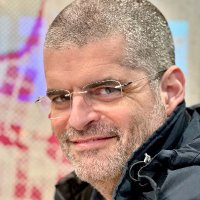
Dr. Bernardo Kastrup, PhD philosophy, PhD computer science, for many years worked at CERN, the large hadron collider in Geneva.
“… the function of the brain is to localize consciousness, pinning it to the space-time reference point implied by the physical body. In doing so, the brain modulates conscious perception in accordance with the perspective of the body.
a brain that filters implies the existence of unbound mind, a universal consciousness
"When not subject to this localization and modulation mechanism, mind is unbound: it entails consciousness of all there is across space, time, and perhaps beyond. Therefore, by localizing mind, the brain also ‘filters out’ of consciousness anything that is not correlated with the body’s perspective… like a radio receiver selecting [a particular station], among the variety [with] all other stations being filtered out and never reaching the consciousness of the listener…
"[T]he filter hypothesis implies that consciousness, in its unfiltered state, is unbound. As such, consciousness must be fundamentally unitary and non-individualized, for separateness and individualization entail boundaries.
Editor’s note: Father Benson from the afterlife speaks of a being, formerly mortal, five billion years old, so advanced as to enjoy awareness of all life-forms in the universe; in this, we see the future of the ‘unfiltered’ mind. Read More on the “500 hundred tape-recorded messages from the other side” page.
the filtering brain creates the illusion of separateness, of disconnected personal egos
"The emergence of multiple, separate and different conscious perspectives or egos, is a consequence of the filtering and localization process: different egos, entailing different perspectives on space-time, retain awareness of different subsets of all potential subjective experiences, the rest being filtered out. It is the difference across subsets that give each ego its idiosyncratic vantage point, personal history, and sense of personal identity.
Editor’s note: A brain designed to filter, and reduce to a trickle, experience does not substantively support a theory of reincarnation which exalts much experience. We do not come to this planet to gain experience, as such, but to individualize, to transform one’s tiny sub-set of universal consciousness into a personal ego. With this, we become ready for what comes next in the afterlife, even if we are not yet “good” persons, which can be accomplished later, but only after one becomes a person in one’s own right. Read More on this need for individualization.
"The subjective experiences that are filtered out become the so-called ‘unconscious’ mind of the respective ego. Since each ego allows in only an infinitesimally small part of all potential experiences … the ‘unconscious’ minds of different egos will differ only minimally… As such, the filter hypothesis, unlike materialism, predicts the existence of a ‘collective unconscious’; a shared repository of potential experiences that far transcends mere genetic predispositions of a species…
the likely origin of the mystical experience
"[A]nd most importantly, the filter hypothesis predicts that one can have experiences that do not correlate with one’s brain states. Since here the brain is seen merely as a mechanism for filtering out experience … when this [filtering] mechanism is interfered with so as to be partially or temporarily deactivated, one’s subjective experience could delocalize, expand beyond the body in time and space, and perhaps even beyond time and space [giving rise to what is called the mystical experience]…”
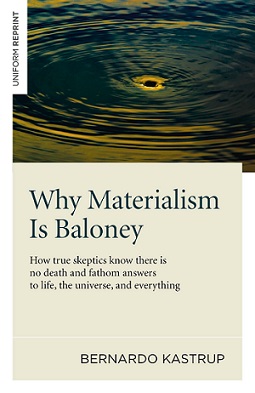
READ MORE of Dr. Kastrup's work on the “quantum mechanics” page
|
fast forward
But let’s skip ahead in time. You’ve been at this for a while now, some months, maybe even a few years. What’s happening now when you sit quietly in a room alone?
Well, strangely, on the surface of awareness, sometimes, a lot of the time, it feels like nothing has happened. When you begin to sit quietly, there it is, right on cue – the circus rider is jaunty, ready, and able to jump from horse to horse.
But then, we also notice, there actually is a change. The periods of mental quietude are growing longer; not wildly so, maybe only by many seconds, or a half a minute, but you realize that you’ve thrown the circus guy off his game. He’s losing energy, and you’re winning and gaining mastery.
But, while this accomplishment is gratifying, it’s not the real benefit to you.
you're so different now
You don’t perceive the change in yourself. When you meet that circus rider in the small room each day, you feel that it’s one more day of battle, and, as you mark your scorecard, the "desultor," it seems, keeps winning too many points. Or not.
But then a day comes, many months or a few years later, when – not a stranger, not someone you know only casually, but – the people you live with, those who interact with you often, those who know you better than anyone else in the world – begin to concede: “You’re different somehow. You seem... more intelligent… more like a better person... What's happened to you?” First one will say this, then another, then another, and then another. And now you know that something is really cooking down below.
Again, as you assess yourself, you yourself will see little to no progress. From your perspective, many times, at least in the beginning, you will feel that you’re getting worse. But you’re not getting worse. What’s different is that your eyes are opening, and, for the first time in your life, you begin to truly see, you've been introduced to the ego's “heart of darkness” within. And it’s not always a pretty postcard.
|
the vice of the virtuous
In my own case, I find at times that this self-reading of “getting worse” is linked to a heightened sense of one’s own dark side. It becomes uncomfortably too real.
And I would say that, especially if one comes from a conservative background, the reality of the “heart of darkness” can make one feel extremely disoriented.
Elsewhere I have spoken of “unearned guilt” and this too begins to oppress one’s spirit. Anomalously, one can even begin to react or to see oneself, virtually, as a criminal, which is very unpleasant. I came to understand that all this confusion is part of the “long dark night of the soul.”
But why should we be required to enter this detour into a personal hell, seeing the darkness, up close – sometimes, the “madness maddened” -- within one’s own deeper person? Why can’t we simply say, “I want to emphasize positive things in my spirit, focus only on good things, and ignore and suppress the darkness within?”
The answer here is complicated. Many, in fact, do allow this form of repression. But, at what cost, and to what effect? I have come to see that true spirituality will be founded upon a perception of both the light and the dark in one’s person – which is the universal condition of humanity; no exceptions.
It’s become clear to me that, without seeing both sides, one becomes neurotic and will enter that self-delusionary world of “I thank thee Lord that I am not like other men.”
When this happens, there can be no authentic compassion for the down-trodden, service efforts become tainted with pride, one will unwarrantedly judge oneself to be “above” and “better,” and now, at best, polished manners will conceal a contempt for the weak, a cloaked, “If you were as good as I am then you wouldn’t be in this trouble.” Many have trouble believing that, with sufficient provocation, or cultural conditioning, or substantial duress, one might commit any crime of history.
And in this gross illusion of "I am better, I am chosen", a new form of evil rises in the world, and we become useless in terms of authentically representing the love of God. Some have called this hidden cancer, “the vice of the virtuous.”
|
here's what happened
People will notice the change in you. You're no longer as reactive. You don't blow up as easily anymore. It's harder to pull your chain. Others find it more difficult to get a rise out of you if you're insulted.
How did this happen? It happened by reducing the influence of the insane ego in your life.
It didn't happen by going to church, or pinning little platitude cards on the bathroom mirror, or by praying more, or by chanting a "feel good" mantra. It happened in, what we would call, a natural way. When the dysfunctional ego is tethered and put on a short leash, our natural "true self," the natural life and goodness of the "made in the image" soul, naturally -- like effervescent bubbles naturally rising in ginger ale -- begin to surface and manifest in one's person.
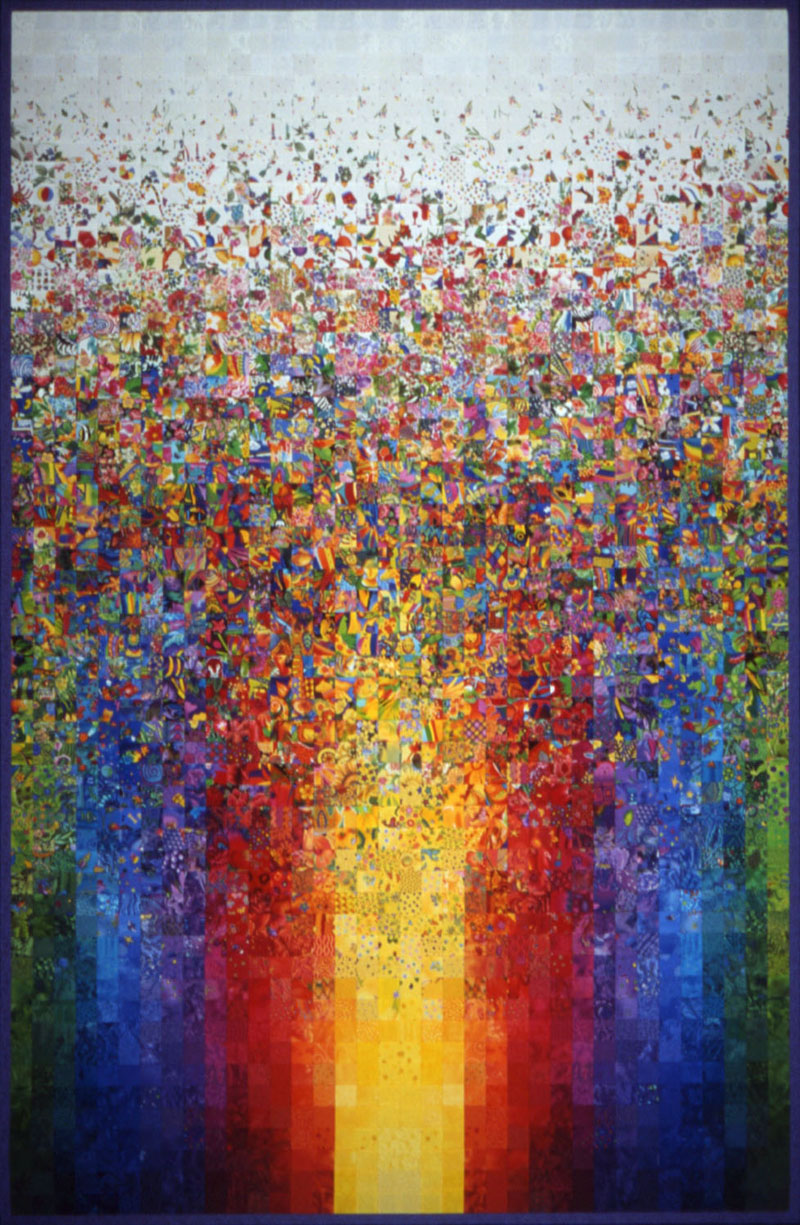
This life and goodness is innate, was there all the time -- every human being possesses these "inner riches" -- but the dysfunctional ego made us believe that we're no good. This is the great delusion.
How is the dysfunctional ego neutralized in a quiet room?
It happens gradually, by displacement; less of the false self, more of the true.
We speak of opening the eyes, of coming alive, of growing in consciousness. What does this mean?
We as human beings are very aware of our fleshy bodies; thoughts concerning such impinge upon us almost constantly. Materialistic eyes see only the outer mortal shell. The cosmic reality, however, is much different.
We are not, primarily, fleshy bodies. Each of us is a field of energy, a field of consciousness, a field of the very essence of god-life. This is the "true self," linked to God at the soul level.
As we sit in a quiet room, stilling the egoic mind, the escaping "effervescent bubbles" from below, that cloaked field of life and consciousness, become more and more evident to us.
This is the quest for us, even for the next million years and beyond. There is so much god-life to unpack hidden in the soul. As we've said, God needed to invent eternity to bring it all to palpable awareness, the surface of personhood.
You're industrious, you say? busy? proactive, get out there and make it happen? - really? or is it a way of escape and cover-up, a work-ethic fueled by neediness, "I don't have enough," fear and doubt, and "I am not enough"?
I used this as a masthead above. When you enter that quiet room and immerse yourself in the innate field of god-life, secrets are revealed - and you will blow your own cover. This means that you will no longer be able to hide from yourself and your real reasons for doing things.
all of your secrets will come out
It's not possible to live a lie in an energy field of god-life. And you will begin to perceive, like a "radar sense," the hidden motivations of all that you do, or have ever done; that's right - ever done.
And this is why, when you cross over, you won't need a life-review. You will then smile at the suggestion, because that's all you did while you were here.
|

|
-
- Sting, Let Your Soul Be Your Pilot
-
-
- When the Compass Spins Between Heaven and Hell, When Your Secrets are All Found Out... Let your Soul be your Pilot, it will Guide you well...
-
|
|






